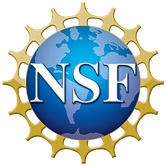Nanosurfaces Activity
This activity has two parts: one showing visitors how materials behave differently when they get small (tiny tea cup) and one showing the effect of nanoscale features on surfaces (lotus effect).
The tiny tea cup used in this activity introduces visitors to the idea that when materials get very small, they behave differently. Visitors discover that itís easy to pour water out of a regular-sized cup, but not out of a miniature cup, because different forces dominate when things get small.
The second part of this activity introduces visitors to the idea that nanoscale features on surfaces can have an effect on macroscale behavior. For example, The lotus effect, first observed in the leaves of the lotus plant, is a self-cleaning, water-repelling property found in some plants. Remarkably, despite constant exposure to dust, dirt, and rain, the leaves of the lotus plant remain clean and dry. Scientists have learned that this is because the surface of each leaf contains nanoscale waxy bumps that prevent both dirt and water from adhering to it.
In this activity,visitors compare how water interacts with regular lettuce and leaves that exhibit the lotus effect by dropping water onto the different types of leaves.
Materials
- Nanosurfaces activity guide
- Nanosurfaces poster
- Tiny Tea Cup activity guide
- Tiny Tea Cup Table Sign
- Regular sized tea cup
- Miniature tea cup
- Droppers
- Large bowl for water
- Water
- Lettuce leaves
- Leaves that exhibit the lotus effect (e.g. kale, water lillies, and collard greens)
- Tray to hold the leaves
- Paper towels
NOTE: The Tiny Tea Cup activity was developed by the Nanoscale Informal Science Education Network.
Training Videos
Learn More
Resources:
- Slides:
- Activities:



